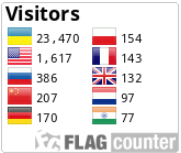TEACHER STUDENTS TRAINING TO IMPLEMENT AR AND VR TECHNOLOGIES IN FOREIGN LANGUAGE TEACHING
DOI:
https://doi.org/10.28925/2518-7635.2022.78Keywords:
AR technologies, digital competence, foreign languages, teacher students, professional training, VR technologiesAbstract
The article is devoted to the problem of students' training of the first educational level of pedagogical specialities (Primary and Preschool education) to the implementation of augmented and virtual reality technologies in foreign languages teaching. The notions of AR and VR technologies are clarified, and the necessity and specifics of the use of AR and VR technologies in foreign language teaching are explained. The article observes the use of AR and VR technologies in foreign language teaching as an essential part of the digital competence of the modern teacher. The choice of teaching methods, technologies, and tools in foreign language teaching is emphasized. Therefore, the professional training of pedagogical speciality students’(the first education level) significance is grounded. The depicted examples of such training are based on the working curriculum of the discipline “Mobile learning technology in foreign language teaching of preschool children”. This discipline is taught at Borys Grinchenko Kyiv University, and it is designed for the students of 012 Preschool education. This article focuses on the module “Mobile learning technology in foreign language teaching of preschool children,” which involves mastering AR technologies in teaching a foreign language at the preschool. The expected learning outcomes for the first education level pedagogical speciality students in terms of their professional training to use AR and VR technologies in foreign language teaching are discussed.
Downloads
References
Alakärppä, I. (2017). “Using Nature Elements in Mobile AR for Education with Children.” Proceedings of the 19th International Conference on Human-Computer Interaction with Mobile Devices and Services.
Augmented and Virtual reality. (2018). Observatory of Educational Innovation. http://surl.li/fxnwz
Castaño-Calle R, Jiménez-Vivas, A., Poy Castro, R., Calvo Álvarez, M. I, & Jenaro, C. (2022). Perceived Benefits of Future Teachers on the Usefulness of Virtual and Augmented Reality in the Teaching-Learning Process. Education Sciences, 12(12), 855. https://doi.org/10.3390/educsci12120855
Jumani, A. K., Siddique, W. A., Laghari, A. A., & Ahad, A. (2022). Virtual Reality and Augmented Reality for Education. Multimedia Computing Systems and Virtual Reality, 1-st Edition, Chapter 9, (pp.189–210). Taylor & Francis. https://doi.org/10.1201/9781003196686-9
King S, Boyer J, Bell T, & Estapa A. (2022). An Automated Virtual Reality Training System for Teacher-Student Interaction: A Randomized Controlled Trial. JMIR Serious Games, 8, 10(4). https://doi.org/10.2196/41097.
Karacan, C. G., & Kemal, A. Educational Augmented Reality Technology for Language Learning and Teaching: A Comprehensive Review. Shanlax International Journal of Education, 9(2), 2021, 68–79. https://doi.org/10.34293/education.v9i2.3715
Kosharna, N. (2021). Modern European experience of practical teacher training. Educological discourse, 1(32), 143–155. https://doi.org/10.28925/2312-5829.2021.1.10
Kotenko, O., & Holovatenko, T. (2020). Models of foreign language primary school teacher training in the EU. Innovative Scientific Researches: European Development Trends and Regional Aspect, 92–115. https://doi.org/10.30525/978-9934-588-38-9-5
Lampropoulos, G., Keramopoulos, E., Diamantaras, K., & Evangelidis, G. (2022). Augmented Reality and Virtual Reality in Education: Public Perspectives, Sentiments, Attitudes, and Discourses. Education Sciences, 12(11), 798. https://doi.org/10.3390/educsci12110798
Lan, Y. J. (2020). Immersion, interaction, and experience-oriented learning: Bringing virtual reality into FL learning. Language Learning and Technology, 24(1), 1–15.
Nezhyva, L., & Palamar, S. (2021). Preparation of future primary school teachers for the use of augmented reality in literacy and literary reading lessons. Educological discourse, 2(33), 144–159. https://doi.org/10.28925/2312-5829.2021.2.11
Mospan, N. V., Ognevyuk, V. O., & Sysoieva, S. S. (2022). Emergency Higher Education Digital Transformation: Ukraine’s Response to the COVID-19 Pandemic, Information Technologies and Learning Tools, 89(3), 90–104. https://doi.org/10.33407/itlt.v89i3.4827
Mospan, N. V., & Sysoieva, S.O. (2022). Trends in Digital Adaptation of Schools During the COVID-19 Pandemic, Information Technologies and Learning Tools, 91(5), 21–35. https://doi.org/10.33407/itlt.v91i5.5063
Panagiotidis, P. (2021). Virtual Reality Applications and Language Learning. International Journal for Cross-Disciplinary Subjects in Education, 12(2). https://doi.org/10.20533/ijcdse.2042.6364.2021.0543
Parmaxi, A., & Demetriou, A. (2020). Augmented reality in language learning: A state-of-the-art review of 2014–2019. Journal of Computer Assisted Learning, 1–15. https://doi.org/10.1111/jcal.12486
Petryk, L. (2021). Media didactic support of the process of future primary school teachers’ foreign language training. Educological discourse, 1(32), 112–128. https://doi.org/10.28925/2312-5829.2021.1.8
Rudnik, Y. V. (2022). Suchasni tekhnolohii navchannia ditei doshkilnoho viku inozemnoi movy (2-4 kurs, Doshkilna osvita): elektronnyi navchalnyi kurs dlia studentiv spetsialnosti 012 Doshkilna osvita [Modern technologies of teaching a foreign language to preschool children: (2nd-4th years, Preschool education): e-course for Preschool education students]. Borys Grinchenko Kyiv University. https://elibrary.kubg.edu.ua/id/eprint/42205/1/RPND_STNIMDDV_2-4%20_DO.pdf
Tan, Y., Xu, W., Li, S., & Chen, K. (2022). Augmented and Virtual Reality (AR/VR) for Education and Training in the AEC Industry: A Systematic Review of Research and Applications. Buildings, 12, 1529. https://doi.org/10.3390/buildings12101529
Published
How to Cite
Issue
Section
License
Copyright (c) 2023 The Modern Higher Education Review

This work is licensed under a Creative Commons Attribution-NonCommercial 4.0 International License.













